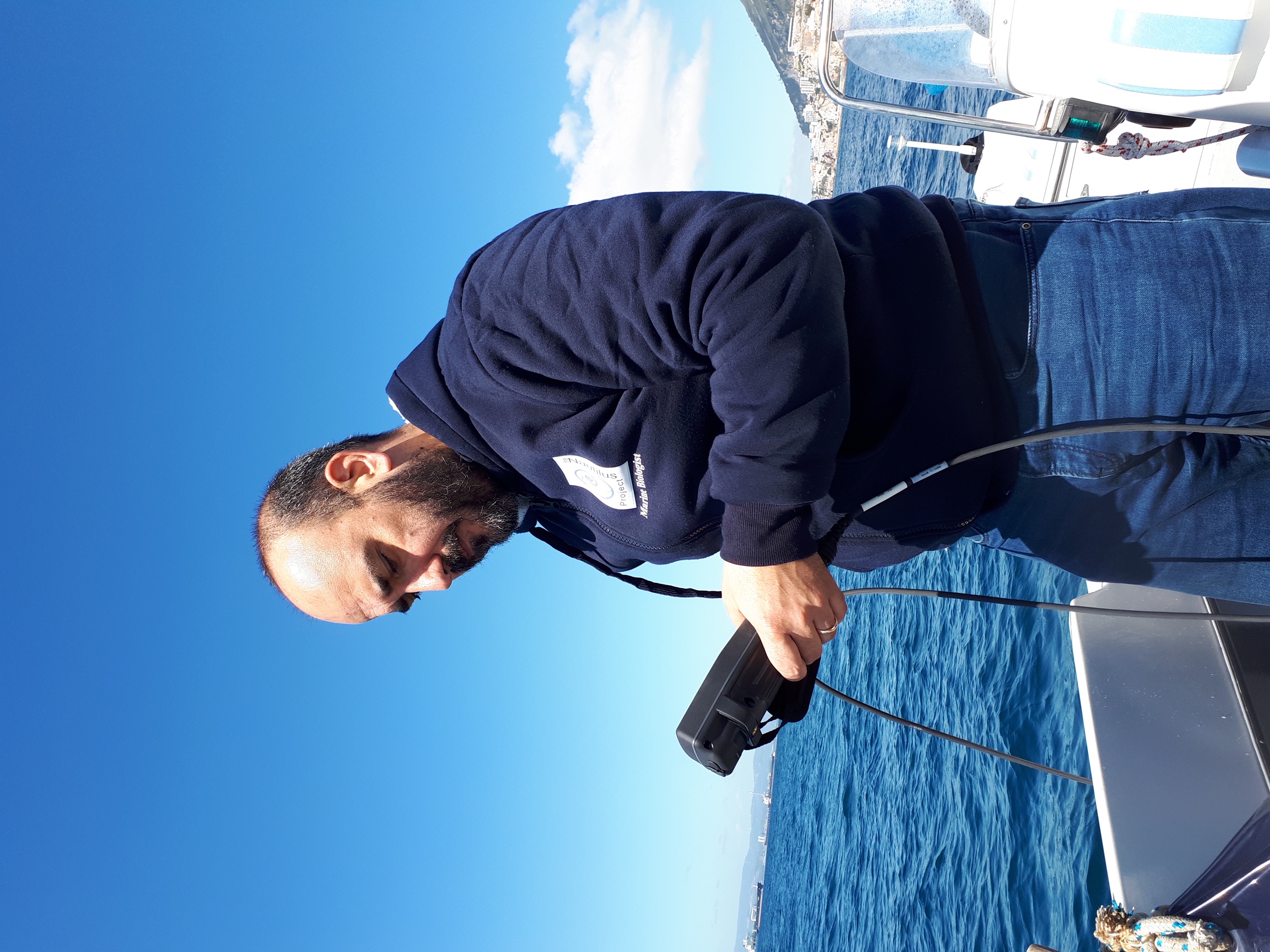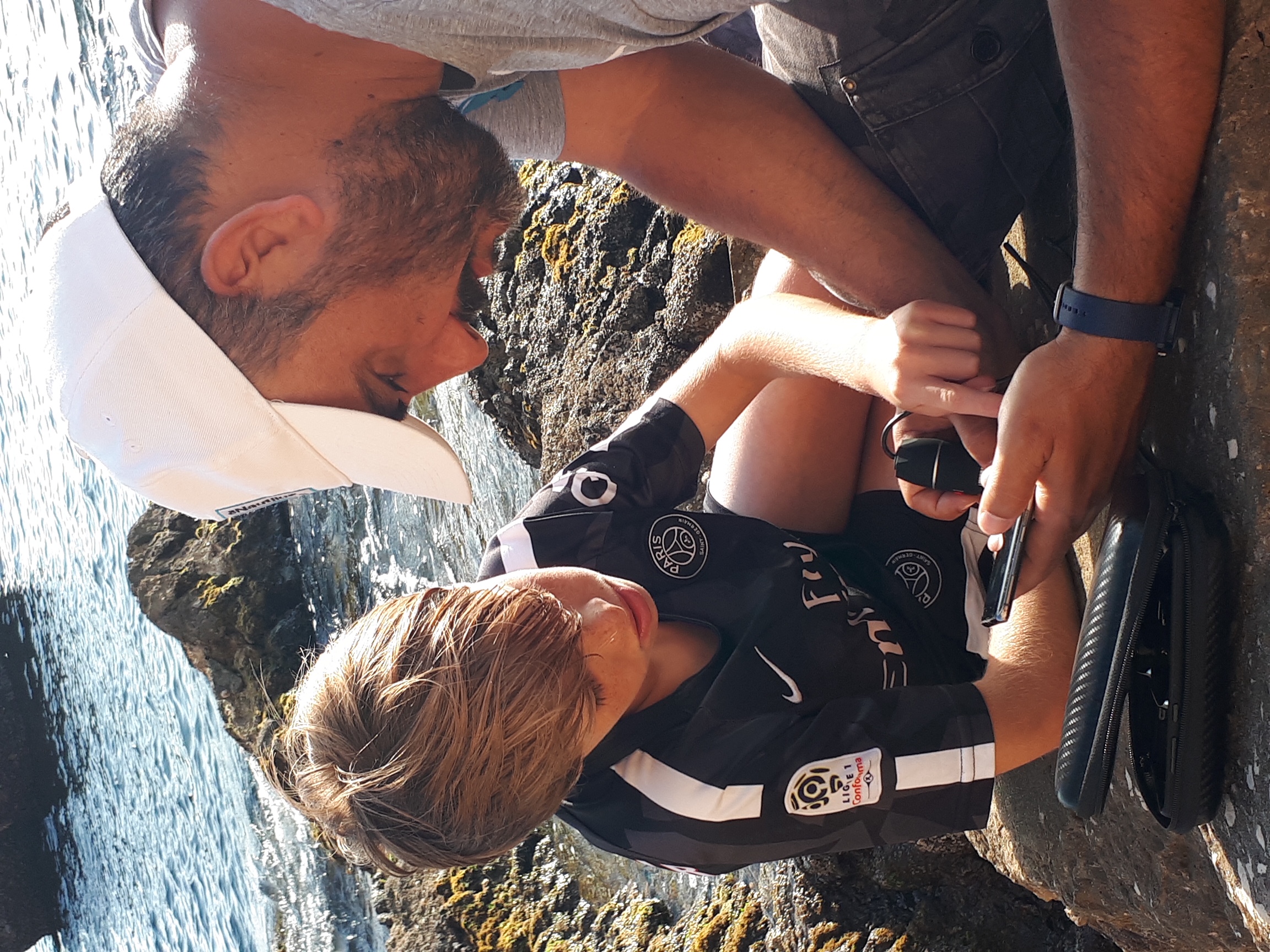
Researchers On The Rock: Lewis Stagnetto
Each month we’re profiling a research student at the University of Gibraltar to find out about their background, studies, what motivates them and how they’ve found the experience of further study on the Rock.
This month’s student is Lewis Stagnetto who is completing a PhD in Marine Biology.
Please introduce yourself:
I’m doing a PhD at the University of Gibraltar - I’m now in my fifth year of their part-time programme. I’m also the co-founder of the Nautilus Project. We do a lot of charity work raising marine awareness in Gibraltar and in schools. I am also a teacher.
When you’re not a University of Gibraltar student, what are you doing?
As a Marine Biologist I’m very passionate about the sea…that goes without saying…but considering that Gibraltar is surrounded by sea, it’s a bit disappointing that there was a lack of opportunities for our youth to explore this. What the Nautilus Project charity does is promote opportunities for the youth to get involved with understanding the life we have on our coastline and what dangers impact on that life and how best to look after it. We’ve got a lot of like-minded people who are volunteers who do their best to promote this sort of work.
To give you an example, the other day I was up early and snorkelling at Little Bay to pull out invertebrates so that St Joseph’s Primary School could have an opportunity to interact with some of the creatures that we have. This takes place at no cost to the taxpayer and at no cost to the schools - we do it free out of the passion that we have for the marine environment.
In layman’s terms, can you explain what you are researching at the University of Gibraltar?
I’m looking at phytoplankton cycles and community structure and how that structure changes over the course of a year. I want to understand what is driving those changes; are they physical factors like temperature and salinity, or are we talking about chemical factors like nutrients, phosphates and nitrates or are we talking about biological factors like predation?
Why are you exploring this area of study?
The reason this area of research is important is because phytoplankton productivity in any body of water is an important carbon sink. What that means is that it will remove carbon from the atmosphere. In any kind of climate change policy that Gibraltar might engage in, understanding how our coastline is sinking carbon is a really important part of that equation and we don’t have that answer yet.
Who are your supervisors and what do they contribute to your studies?
I have Dr Darren Fa from the University of Gibraltar, a very accomplished Marine Biologist who’s done a lot of work in the UK and Gibraltar. Darren specialises in a number of areas and is a very experienced person to have on board for my project. I also have Dr Jeremy Young who is a phytoplankton expert from a Palaeontology point of view. He’s helping me with a lot of the techniques in order to drill down on the detail I need to acquire to get the level of sophistication that’s demanded in a PhD programme.
How have you found the experience so far?
It’s been a bumpy road but it has given me lots of opportunities because of the flexibility of being in the initial cohort of students. The university was finding its feet and I think we were able to get close to the heads of different sections. This was an advantage for us.
It’s been very, very difficult to juggle my studies with family and work - the PhD is very demanding. It requires a lot of careful time management; if I take my eye off the ball in one of these areas of my life, it starts slipping. I have to be very diligent to stay on top of everything as it comes in.
What are the benefits of staying in Gibraltar to conduct postgrad work?
The university is a great thing for Gibraltar. Going forward, it’s going to give local students a fantastic platform and more choice in terms of education. Why do we need to go to a university in the UK with all the problems of travel and Covid when we’ve got these facilities here? The important thing is that it gives students options; there might be students who don’t want to leave their family, whereas others want to explore the world. It gives students choices, and that’s very important in life.
What about the social aspect? Are there opportunities to socialize with other students?
In my case I’m doing a part-time course so it might not have the same feel as a university course would. What I would say is that in the UK you might meet a lot of people working the same field who then go off to live and work elsewhere. The nice thing about the University of Gibraltar is that the people that you meet are always relevant to where you’re going in the area that you’re studying in.
What are your plans for the future?
As you can imagine, there are limitations with the work that I’m doing. When you look at large datasets like those to do with the climate, you see that they have been growing for 50 or 100 years. I can only pick up in a PhD the equivalent of two or three years of sampling. This work has to be continuous in order for it to mean anything, certainly long term, because the environment is always changing and this introduces new variables which aren’t present right now. I hope that at the end of the process I’ll be able to continue researching this and perhaps get some funding for more work on this issue.
My personal philosophy is that learning is something that we should never stop doing throughout our lives. In my life, there was almost an expectation that once the degree was finished, learning would stop - the type of thinking that exams were now over for life. But I very quickly realised that no, that’s not the case; exams continually come because you need to show that you’ve learned and attained. It’s really important to continue learning throughout your life whether it’s something completely new or something that continues making you more proficient in your current area of study. I would encourage anyone who’s thinking about furthering their education to get in touch with the University of Gibraltar - they’re very friendly and amiable and very helpful - to see how they can help you make those important learning choices.
For more information on studying at the University of Gibraltar, visit: https://www.unigib.edu.gi/







